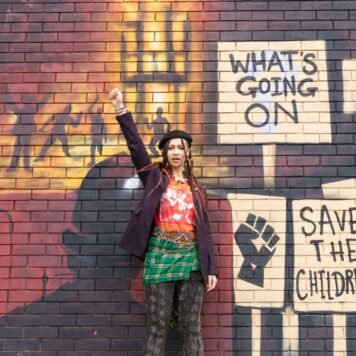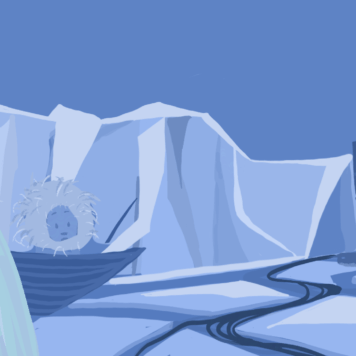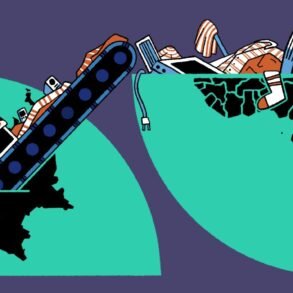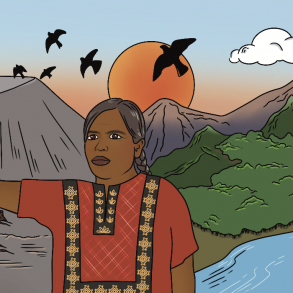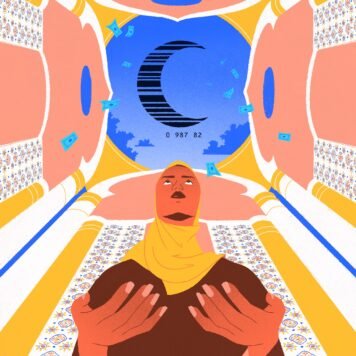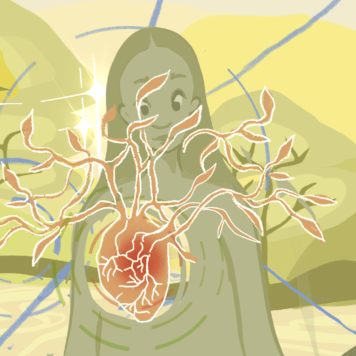Mikaela Loach is one of my closest friends and comrades. We met online whilst both taking time out of medical school to organise, and over the years have bonded over shared love of reading, writing, collective action and dancing.
I was recently on a walk with some close friends of mine. As we sat down in the park, I had Mikaela’s new book It’s Not That Radical in my bag.
Holding her book, I used it as a starting point to ask my friends a question I often dread asking to people who aren’t in organising spaces: “what is your relationship to the climate crisis?”
Despite having heard me talk about the power of organising for years, they all said they were paralysed by the guilt of ‘causing the climate crisis as individuals.’ They spoke about not knowing where to start, the anxiety over expectations of perfectionism, and general pessimism at the possibility of achieving change.
I shouldn’t have been surprised by their answers. Why would my friends be immune to the oil company propaganda around individualism and consumerism which, for decades, has paralysed the public and infected the climate movement?
This conversation made me reflect on my own organising journey.
None of us were born radical. My journey began by ‘trying to do something’ through the apolitical and deeply problematic field of global health. A series of fortunate events eventually led me to realise how capitalism works through investigating the colonialism of pharmaceutical companies, and I started organising in radical student movements.
As Mikaela reminds us in her book, the societal transformation we need for climate justice will require millions of people to change their beliefs, their actions and their entire lives. And to do that we have to meet people where they are and bring them into organising in an inclusive way.
Embracing this (highly non-linear) journey, and inviting people on it, is a core part of It’s Not That Radical. However, this does not mean lowering our standards of climate justice. The book does not tone down the demands of the climate justice movement to ‘bring more people on board’ and make it more palatable, but instead aims to transform the reader towards a radical vision of a better world that we can build together.
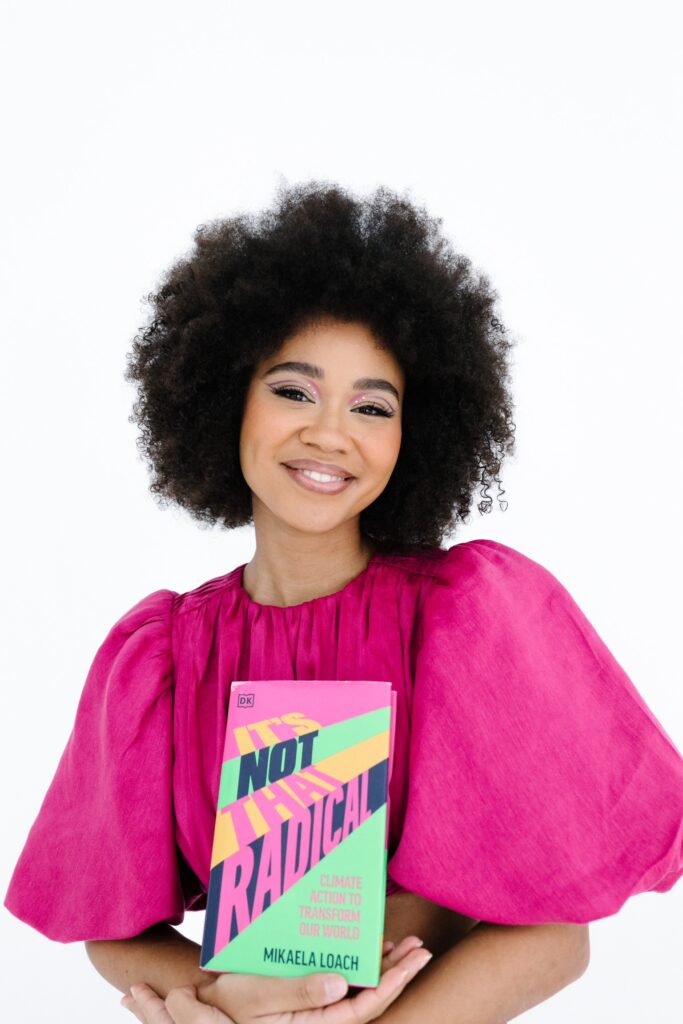
Climate movement at a crossroads
One of my favourite things about Mikaela is her softness – the generosity, gentleness and love she radiates into the world. But it is not the softness invoked by the “be kind” crowd, who preach about embracing everyone’s different views, no matter how violent they are.
It is a softness which, with fierce love for each other, demands us to dismantle white supremacy, capitalism, patriarchy and colonialism, whilst at the same time building movements which can embrace people along the way. It is this softness which holds readers as they move through what is a deeply radical and challenging book.
The timing of this book comes at a crossroads for the climate movement. More and more corporations, think-tanks, NGOs, politicians and elites are starting to support green capitalist ‘climate action’, often utilising endorsements from ‘climate activists’.
On the other hand, more and more people are part of climate justice movements that are in coalition with and/or inseparable from movements of Black liberation, anti-imperialism, dismantling cis-hetero-patriarchy, anti-capitalism and more.
Mikaela and I spoke about these two increasingly divergent paths we see in the climate movement as we sat down in a cafe in Brighton after a blustery walk along the beach.
She tells me: “We are going to have climate action, but not all climate action is good. We need to recognise that we are either going to get ecosocialism or ecofascism. But if we concede to green capitalism we will compromise the possibility of a justice-based future.” From years of organising, I know that without being grounded in community and commitment to collective liberation, these green capitalist ‘easier wins’ (easier for who, though?) can be tempting.
On the violence of white environmentalism
One of the core demands of It’s Not That Radical is to challenge white environmentalism – a kind of ‘climate activism’ which fails to recognise the systems of oppression which the climate crisis has arisen from and exacerbates.
As my comrade and friend Dr Abi Deivanayagam wrote: “the climate crisis is not a new wound, but the salt in existing wounds.” Mikaela’s book meticulously documents these wounds; how the climate crisis is a product of colonial capitalism and the systems it requires to survive – white supremacy and class oppression in particular.
White environmentalism leads us down dangerous paths, such as overpopulation arguments (the completely debunked argument that climate change is caused by ‘too many people’, arising from a long history of eugenics) and green imperialism (rich countries can keep plundering the resources of the global South, but just take lithium instead of oil).
White environmentalism also holds people back from having an actually effective strategy and in her book Mikaela writes that “white supremacy has both created this problem and held us back from solving it, even in the spaces that say they’re there to create change.”
Subscribe to shado's weekly newsletter
Exclusive event news, job and creative opportunities, first access to tickets and – just in case you missed them – our picks of the week, from inside shado and out.

Conversely, those doing the most impactful work to resist the destruction of life are often those most dedicated to liberation and historically excluded from the ‘climate’ discourse.
Mikaela says that “for me, the most exciting ‘climate organising’ is work that brings together groups typically not recognised in this space, like working with abolitionists to stop prison expansion on environmental grounds and highlighting the links between police violence, racism and the fossil fuel industry.”

Who counts as the ‘climate movement’?
Over coffee, we chat about the contradictions of the term ‘climate movement.’
Mikaela explains, “The climate justice movement as a whole has always been led by Black, Indigenous and other global majority communities for generations, before it was ever called ‘climate activism’. What people think of as the mainstream ‘climate movement’ are the whitest parts of it, often focused solely on emissions.”
This definitely resonates. I often feel really gross being publicly called a ‘climate activist’, whilst the decades of anti-extractivist resistance by my comrades in the Niger Delta, Ecuador and beyond are ignored and actively silenced.
Campaigns such as the People’s Health Tribunal and the Yukpa Solidarity Network aim to challenge this by building relationships of deep solidarity between organisers who are in proximity to violent colonial industries such as oil, gas, and mining companies (they all mostly have their HQs in London, Geneva, Toronto, etc) and the frontline communities resisting them in their territories.
Beyond inclusion
Alongside her deconstructions of white environmentalism, Mikaela uses her chapter That’s not the kind of diversity we want to make clear that inclusion in oppressive systems cannot be the aim of liberation movements.
It can be a difficult conversation to have, but Mikaela believes it is important to address.
“We have seen marginalised identities being weaponised to protect the status quo,” she explains. “Capitalism is adaptable and is changing to make itself look better without changing people’s material conditions.”
Mikaela and I discussed how difficult this can be when Rishi Sunak released a video promoting the Rwanda plan, an example she highlights in the book. In it he said – “I know what racism is. I’ve experienced it myself. I want to be clear with you all that there is absolutely nothing racist about wanting secure borders that work.” This is a policy that will likely result in deportation, illness, violence and death for thousands of migrants.
At the same time, many parts of the climate movement still have a major problem with racism. This includes the white environmentalist arguments we discussed earlier, and also the racism experienced by People of Colour organising in parts of the climate movement. We have seen this abuse and gaslighting inflicted on our friends and comrades, and Mikaela has experienced a horrific amount herself. Her call for a politics of liberation over inclusion is not a green light for the many climate spaces that are violent towards People of Colour.
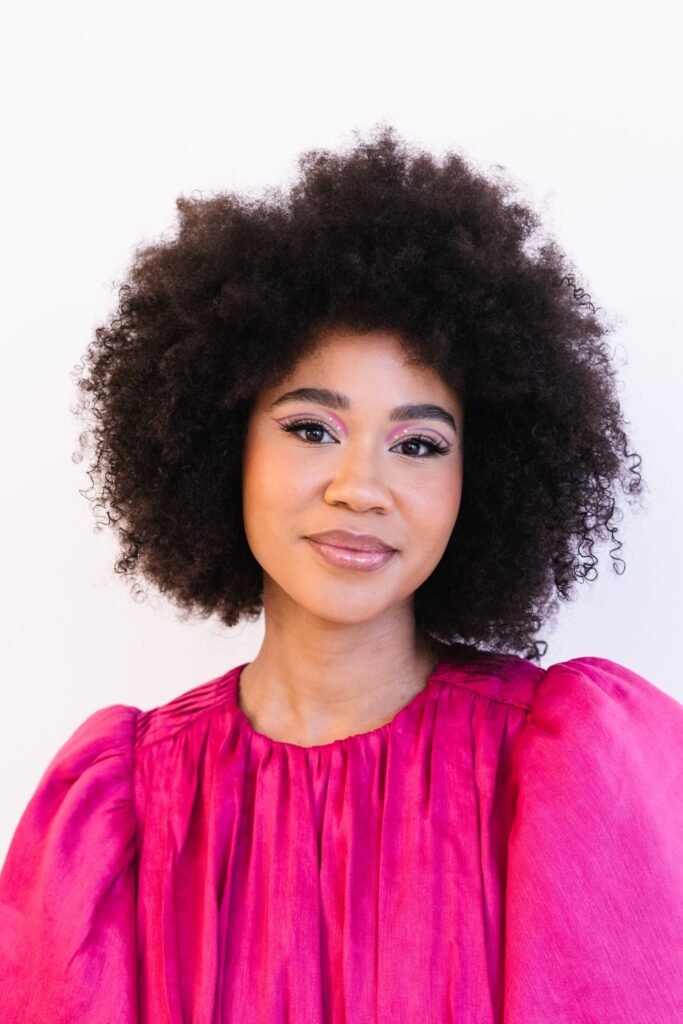
Radical imagination, and the mud of everyday organising
Mikaela and I love to share learning with each other. Our WhatsApps are full of screenshots, links, and long voice notes asking difficult questions about organising. One of the things we talk about often, and one of the key themes of the book, is the importance of radical imagination. This imagination is not escapism, but a strategic act that can hold us accountable to collective liberation.
When it comes to the timeless question of how we can hold this radical imagination, whilst organising in a context so far from that, lessons from abolitionists are critical for climate strategy.
Mikaela draws on thinkers such as adrienne maree brown, Ruth Wilson-Gilmore, Angela Davis and Aurora Levins Morales to hold a conversation with the reader, and in the book I saw reflections of similar conversations we’ve had together, swinging on ropes in a field behind her parents house.
One of my favourite quotes from Aurora Levins Morales is: “We point ourselves toward those dreams, but the conditions don’t yet exist to make them happen. Standing there in the mud, our job is to keep talking about stars while we shovel slush, add gravel, and pass around hot thermoses.”
As climate justice organisers, we can and must talk about the stars, about vast possible futures based on land back, reparations, eco-socialism, degrowth and much more. The book highlights many different proposals, but emphasises how these visions of the future must also be flexible, emergent and adaptable.
We may never achieve what we envision in our lifetimes and, even if we do, these visions are not places we arrive at and stop, but horizons that constantly expand. Mikaela writes in her book that she’s excited for the visions in her book to “become obsolete”, as we are building towards things that we cannot even think of today.
Alongside this, she does not shy back from the muddiness of organising – the difficult decisions and personal struggles. She says that she felt it was important to be honest with the readers, and not to present organising as a fantasy. She explains, “I want people to join the movement, but I don’t want to trick people into doing it. I want to cultivate generational activists who can stay in the movement for life, not get people to join because we make it sound too good to be true and then they burn out”.
These personal reflections also help to de-dramatise activism. The reality is it’s a lot of mundane work like emails, meetings, and group chats.. Building up to big events like the People’s Health Tribunal against Shell and Total involves endless discussions around funding, logistics, comms and doodle polls, as well as the protests, deep relationships and community gatherings.
Saying that, radical imaginations and the mundane of everyday organising are in constant relation with each other, because, as Joseph Capehart reminds us, “revolution is not some singular event that happens in the future, but a process of constant resistance and renewal, of world ending and world building, including in our everyday relationships.”
Relationships as collective and personal transformation
Throughout my own organising journey it has been relationships – people holding me, challenging me, redirecting me and inviting me – which have radicalised me as an organiser and deeply changed me as a person.
The relationships which have shaped Mikaela weave themselves throughout the book in so many ways. The way she’s included others in the book is one of the things she’s most proud of. She tells me: “I wanted to resist pressure to exert myself as an expert presenting my ideas, when in reality these are collective ideas and I wanted to honour the community around me and those who came before me.”
For me, it is through community that trying to transform the world has changed from something that I ‘do’ to something which lives in my bones. It is through collectives based on love, connection and trust that I have been able to feel the twitches in my muscles of whole worlds based on that.
Mikaela talks about some of the personal transformations that she and many of us are trying to embrace. I asked her how she has changed during her time as an organiser, and she replies that it’s being willing to be wrong.
She says how, as a Black woman, sometimes the trauma response to being constantly disrespected is wanting to never be wrong. Now, she’s trying to be less rigid, but without compromising on her principles, and not being so flexible that she becomes, borrowing an insult coined by Moya Lothian McClean, “a wet wipe like Keir Starmer.”
Being flexible, open, and adaptive used to scare me. Now I think how boring it would be if I already knew all the answers to the questions held in my silly little brain, rather than discovering endless answers to questions I would never have thought to ask, through being part of a community.
My favourite part of the book is when Mikaela writes: “As we go through our lives doing the important-world building work that is so necessary, we will be transformed too. When we are transformed, we transform the world around us. Unlike caterpillars who only get to do their butterfly transformation once, we get to do it over and over and over. Each time is easier and more beautiful than the last – but only if we keep our ears open to listen and hearts open to be moved.”
My friendship with Mikaela has transformed me so deeply. I know her book will transform many others, and I couldn’t be prouder of her.
What can you do?
- Join the People’s Health Tribunal against Shell and Total
- Follow Mikaela Loach on Instagram
- Buy a copy of It’s Not That Radical by Mikaela Loach
- Learn about the Ecosocial Energy Manifesto from the Peoples of the South
- Listen to Movement Memos episode “Ruth Wilson Gilmore on Abolition, the Climate Crisis and What Must Be Done”
- Read a previous interview with Mikaela on the topic of fair fashion HERE
- Read about the need for climate reparations HERE
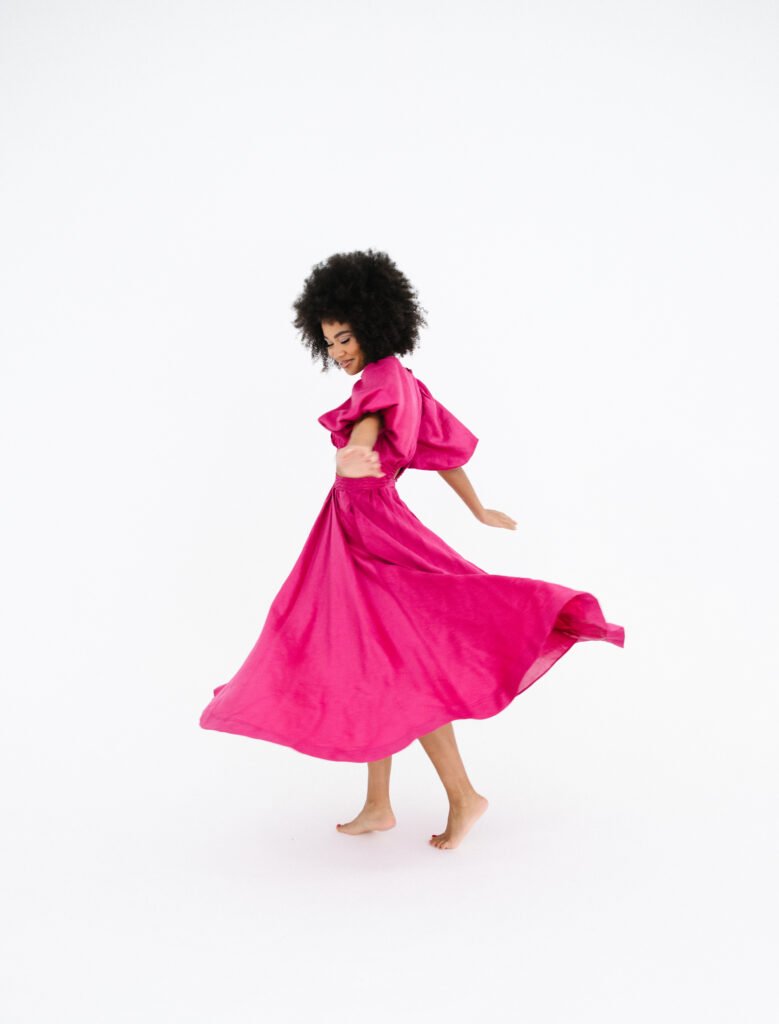
=


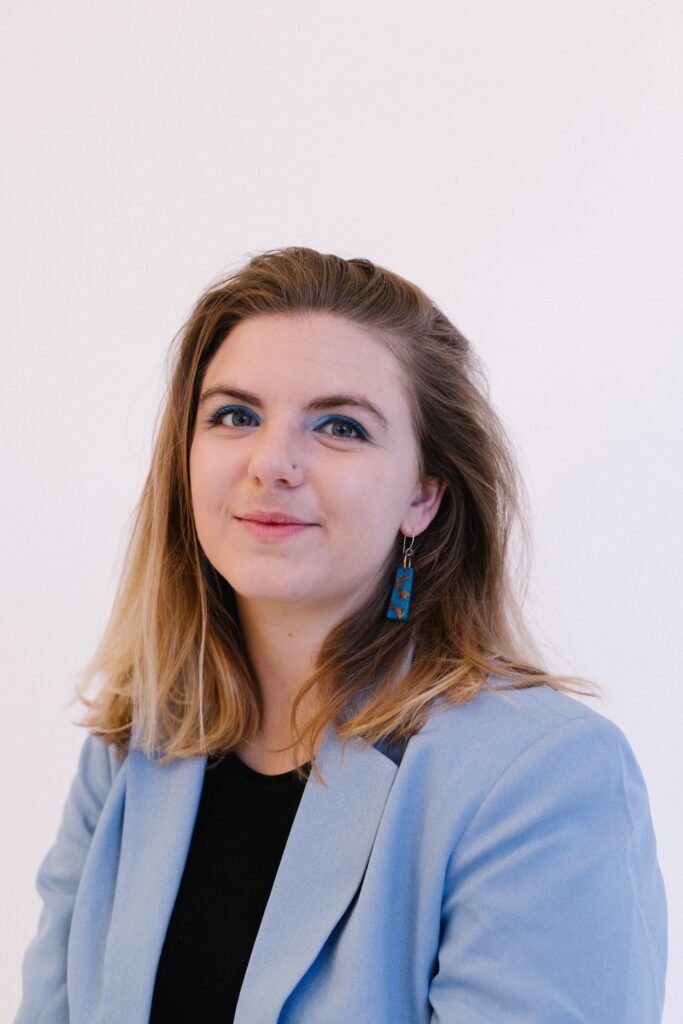

 Photography by Sali Mudawi @saliphotog
Photography by Sali Mudawi @saliphotog
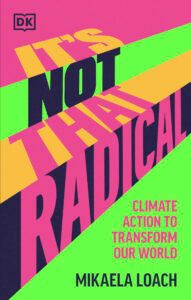
It’s Not That Radical: Climate Action to Transform Our World by Mikaela Loach (DK, £16.99)


